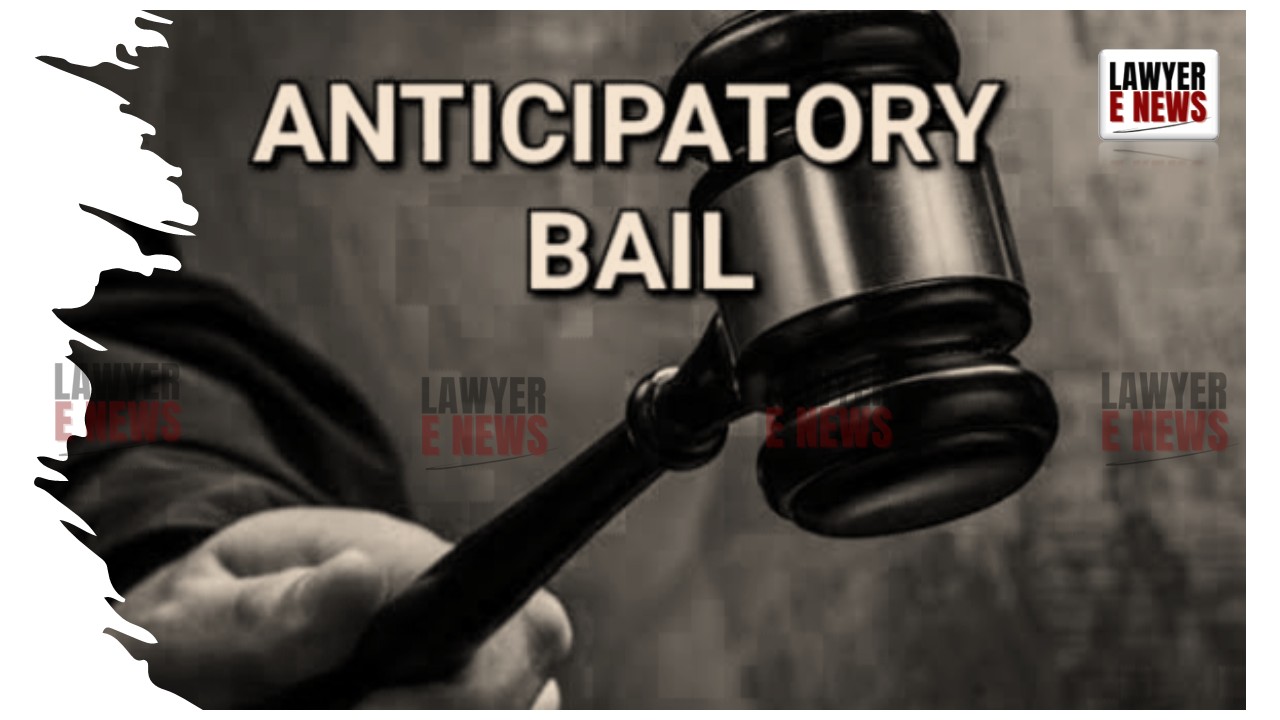-
by Admin
15 February 2026 5:35 AM



Kerala High Court granted anticipatory bail to Jebi I. Cherian, a Regional Transport Officer (RTO) accused of corruption, forgery, and misappropriation of government funds. The petitioner was accused under several provisions of the Indian Penal Code (IPC) and the Prevention of Corruption Act, 1988, for allegedly causing a loss of ₹32,21,165 to the State exchequer through unauthorized cancellation of vehicle registration certificates (R.C.) and tax concessions. The Court emphasized that custodial interrogation was not necessary, given that the evidence against the petitioner was primarily documentary and already recovered.
The prosecution alleged that the petitioner, while serving as the Joint Regional Transport Officer at Cherthala from February 15, 2021, to November 25, 2023, had misused his authority by illegally granting tax concessions and canceling R.C.s of several vehicles. It was also alleged that even after being relieved from his position, the petitioner retained access to the department's user ID and password and canceled ten additional R.C.s on November 27 and 28, 2023. These actions were alleged to have resulted in a financial loss of over ₹32 lakh to the State exchequer.
"The Evidence is Primarily Documentary and Recovered"
The Court acknowledged the prosecution's contention that the petitioner misused his position and authority to commit serious offenses, including forgery and corruption, punishable under Sections 217, 218, 409, 418, 468, and 471 of the IPC and Sections 7(c) and 13(1)(a) read with Section 13(2) of the Prevention of Corruption Act, 1988. However, Justice P.G. Ajithkumar noted that much of the evidence against the petitioner had already been secured during the investigation conducted by the Vigilance and Anti-Corruption Bureau (VACB). The Court observed, "Since the essential evidence required to prove the guilt is borne by records, detention of the petitioner during investigation is not essential."
While the prosecution expressed concerns that the petitioner, being an influential government official, might tamper with evidence or intimidate witnesses, the Court noted that the allegations revolved largely around documentary evidence that had already been recovered. Witness statements had also been recorded. The Court stated, "Considering the nature of the offense and the evidence available, the investigation officer can proceed without custodial interrogation of the petitioner."
The petitioner argued that his actions were within the scope of his duties and that even if procedural violations occurred, they would not amount to criminal misconduct. The petitioner’s counsel, Senior Advocate K.P. Satheesan, contended that the allegations were politically motivated and part of a larger vendetta by the authorities, including the Transport Commissioner. The petitioner also asserted that he had cooperated with the investigation and that his arrest was unnecessary.
The Court emphasized the need to balance individual liberty with the requirements of an ongoing investigation. Citing the Supreme Court's decision in Arnesh Kumar v. State of Bihar [(2014) 8 SCC 273], the Court reiterated that custodial interrogation should only be ordered when absolutely necessary. Justice Ajithkumar remarked, "Anticipatory bail can be granted in such cases to protect the petitioner’s liberty while ensuring that the investigation is not hampered. Stringent conditions can adequately address concerns regarding evidence tampering or witness intimidation."
The prosecution, represented by Senior Public Prosecutor Smt. Rekha S., contended that the petitioner’s actions caused significant financial loss to the government and violated public trust. They argued that custodial interrogation was essential to determine the petitioner’s motives, gather additional evidence, and establish the full scope of the crime. The prosecution also expressed concerns about the petitioner’s ability to misuse his position to influence witnesses or hinder the investigation.
Addressing these concerns, the Court imposed strict conditions while granting bail. The petitioner was directed to surrender before the investigating officer within two weeks and to cooperate with the investigation. In the event of his arrest, he would be released on bail upon furnishing a bond of ₹2,00,000 with two solvent sureties. The Court emphasized, "The petitioner shall not influence or intimidate witnesses, tamper with evidence, or engage in any other offense during the bail period." Additionally, the petitioner was prohibited from leaving the State of Kerala without prior permission from the jurisdictional court.
The Court clarified that if the petitioner violated any of the conditions, the prosecution would be at liberty to seek cancellation of bail.
The Kerala High Court’s decision highlights the principle that pretrial detention should not be used as a punitive measure, particularly when the evidence against the accused is primarily documentary and already secured. The Court struck a balance between protecting the petitioner’s right to liberty and ensuring that the integrity of the investigation remains intact.
Date of Decision: January 15, 2025
